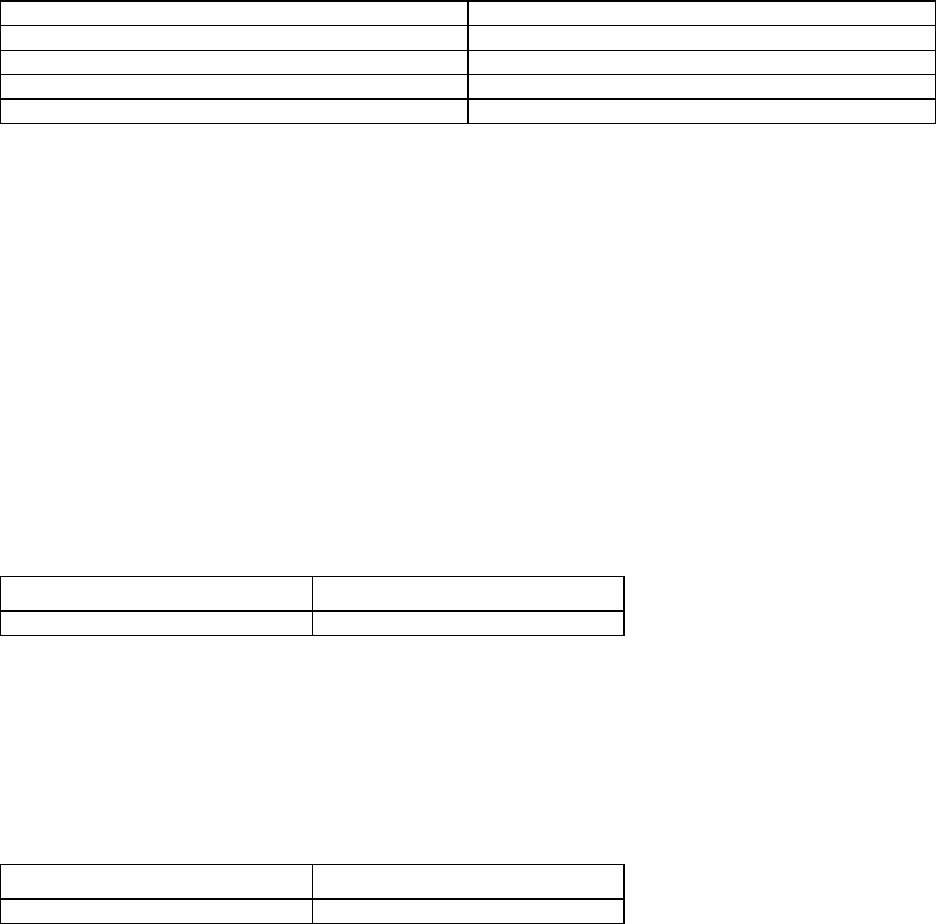
5K320 SATA OEM Specification
35
6.5.2 Nonoperating vibration
The disk drive withstands the following vibration levels without any loss or permanent damage.
6.5.2.1 Random vibration
The test consists of a random vibration applied in each of three mutually perpendicular axes for a duration
of 15 minutes per axis. The PSD levels for the test simulating the shipping and relocation environment is
shown below.
Hz (m
2
/sec
4
)/Hz
2.5 0.096
5 2.88
40 1.73
500 1.73
Table 19. Random Vibration PSD Profile Breakpoints (nonoperating)
Note: Overall RMS level of vibration is 29.50 m/sec
2
(3.01 G).
6.5.2.2 Swept sine vibration
49 m/sec
2
(5 G) (zero-to-peak), 10 to 500 to 10 Hz sine wave
0.5 oct/min sweep rate
25.4 mm (peak-to-peak) displacement, 5 to 10 to 5 Hz
6.5.3 Operating shock
The hard disk drive meets the criteria in the table below while operating under these conditions:
The shock test consists of 10 shock inputs in each axis and direction for a total of 60.
There must be a minimum delay of 3 seconds between shock pulses.
The disk drive will operate without a hard error while subjected to the following half-sine shock pulse.
Duration of 1 ms Duration of 2 ms
1960 m/sec
2
(200 G) 3920 m/sec
2
(400 G)
Table 20. Operating shock
The input level shall be applied to the normal disk drive subsystem mounting points used to secure the
drive in a normal system.
6.5.4 Nonoperating shock
The drive withstands the following half-sine shock pulse without any data loss or permanent damage.
Duration of 1 ms Duration of 11 ms
9800 m/sec
2
(1000 G) 1470 m/sec
2
(150 G)
Table 21. Nonoperating shock
The shocks are applied for each direction of the drive for three mutually perpendicular axes, one axis at a
time. Input levels are measured on a base plate where the drive is attached with four screws.


















